- Browse
- Anatomy
Anatomy Courses
Study human anatomy for careers in healthcare and medical research. Learn about the structure and function of the human body.
Filter by
SubjectRequired *
LanguageRequired *
The language used throughout the course, in both instruction and assessments.
Learning ProductRequired *
LevelRequired *
DurationRequired *
SkillsRequired *
SubtitlesRequired *
EducatorRequired *
Find the best Anatomy course for your goals
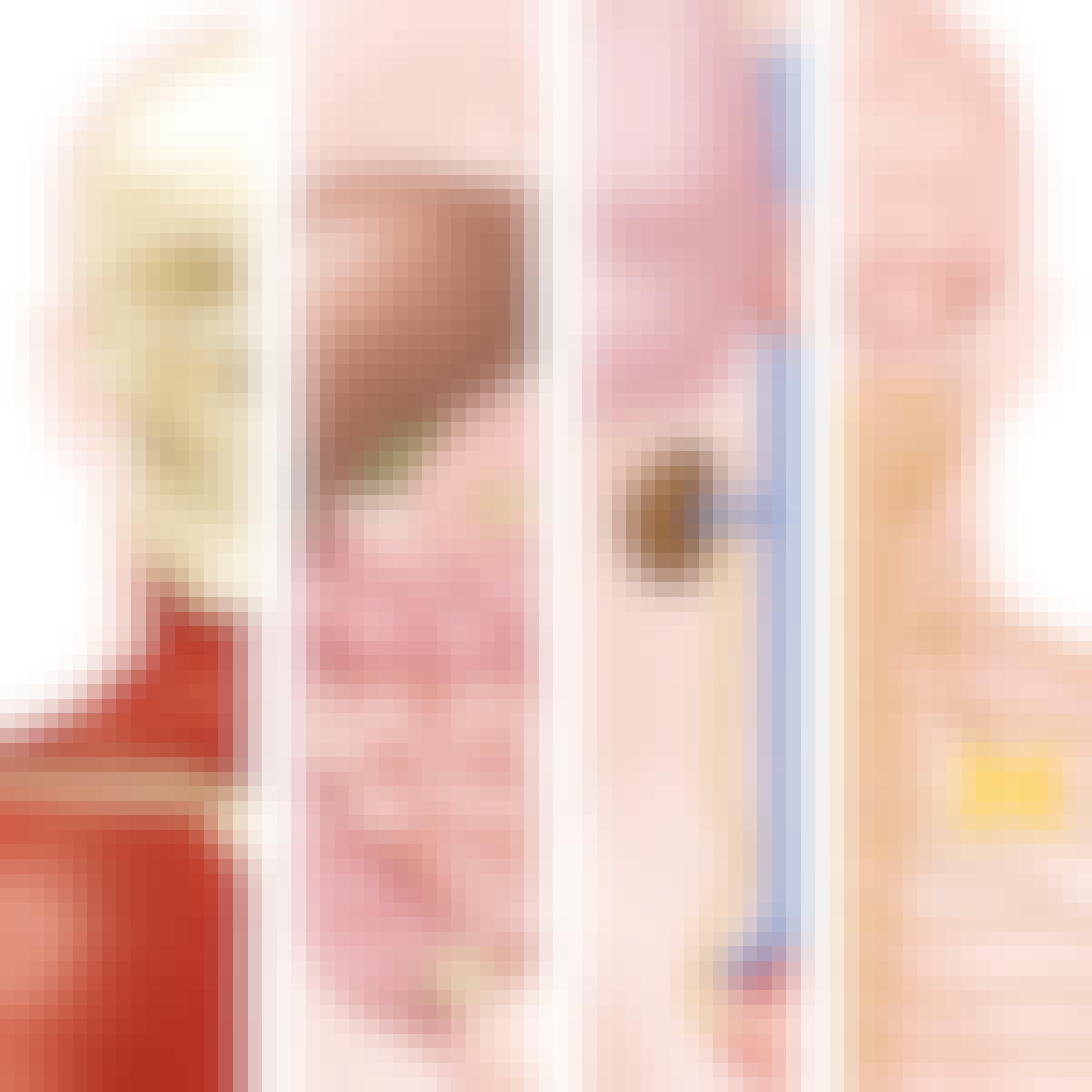 Status: Free TrialFree TrialU
Status: Free TrialFree TrialUUniversity of Michigan
Skills you'll gain: Human Musculoskeletal System, Anatomy, Endocrinology, Pulmonology, Cardiology, Respiration, Gynecology, Hematology, Obstetrics And Gynecology, Orthopedics, Neurology, Urology, Nephrology, Kinesiology, Physiology, Medical Imaging, Sports Medicine, Biology, Medical Terminology, Cell Biology
4.8·Rating, 4.8 out of 5 stars4K reviewsBeginner · Specialization · 3 - 6 Months
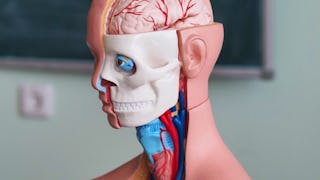 Status: Free TrialFree TrialR
Status: Free TrialFree TrialRRice University
Skills you'll gain: Human Musculoskeletal System, Anatomy, Endocrinology, Orthopedics, Kinesiology, Physiology, Neurology, Medical Terminology, Cell Biology, Biology, Chemistry, Clinical Practices, Sports Medicine, Physical Therapy, Molecular, Cellular, and Microbiology, Life Sciences, Lifelong Learning
4.7·Rating, 4.7 out of 5 stars155 reviewsIntermediate · Specialization · 3 - 6 Months
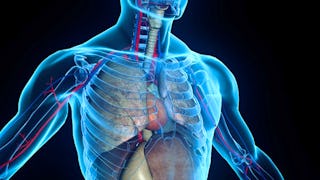 Status: Free TrialFree Trial
Status: Free TrialFree TrialSkills you'll gain: Medical Terminology, Pulmonology, Pathology, Endocrinology, Cardiology, Medical Records, Respiratory Therapy, Neurology, Obstetrics And Gynecology, General Medical Tests and Procedures, Diagnostic Tests, Urology, Gynecology, Anatomy, Human Musculoskeletal System, Health Information Management and Medical Records, Cell Biology, Orthopedics, Physiology, Immunology
4.7·Rating, 4.7 out of 5 stars254 reviewsBeginner · Specialization · 3 - 6 Months
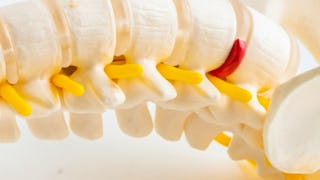 Y
YYale University
Skills you'll gain: Anatomy, Neurology, Human Musculoskeletal System, Respiration, Physiology, Radiology, Surgery
4.8·Rating, 4.8 out of 5 stars39 reviewsBeginner · Course · 1 - 3 Months
 Status: PreviewPreviewD
Status: PreviewPreviewDDuke University
Skills you'll gain: Physiology, Respiration, Endocrinology, Anatomy, Pulmonology, Cardiology, Nephrology, Urology, Kinesiology, Vital Signs, Neurology, Biology, Nutrition and Diet
4.8·Rating, 4.8 out of 5 stars5.3K reviewsBeginner · Course · 1 - 3 Months
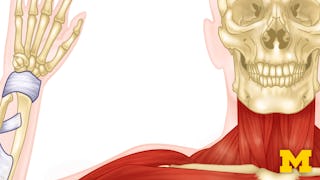 Status: Free TrialFree TrialU
Status: Free TrialFree TrialUUniversity of Michigan
Skills you'll gain: Human Musculoskeletal System, Anatomy, Orthopedics, Kinesiology, Sports Medicine, Physiology, Biology, Cell Biology
4.8·Rating, 4.8 out of 5 stars2.3K reviewsBeginner · Course · 1 - 4 Weeks
What brings you to Coursera today?
 Status: PreviewPreviewY
Status: PreviewPreviewYYale University
Skills you'll gain: Cardiology, Anatomy, Obstetrics And Gynecology, Urology, Neurology, Pulmonology, Nephrology, General Surgery, Diagnostic Radiology, Medical Terminology, Surgery
4.8·Rating, 4.8 out of 5 stars1.9K reviewsIntermediate · Course · 1 - 3 Months
 Y
YYale University
Skills you'll gain: Human Musculoskeletal System, Anatomy, Orthopedics, Kinesiology, Patient Positioning, Neurology, Physical Therapy
4.9·Rating, 4.9 out of 5 stars98 reviewsIntermediate · Course · 1 - 3 Months
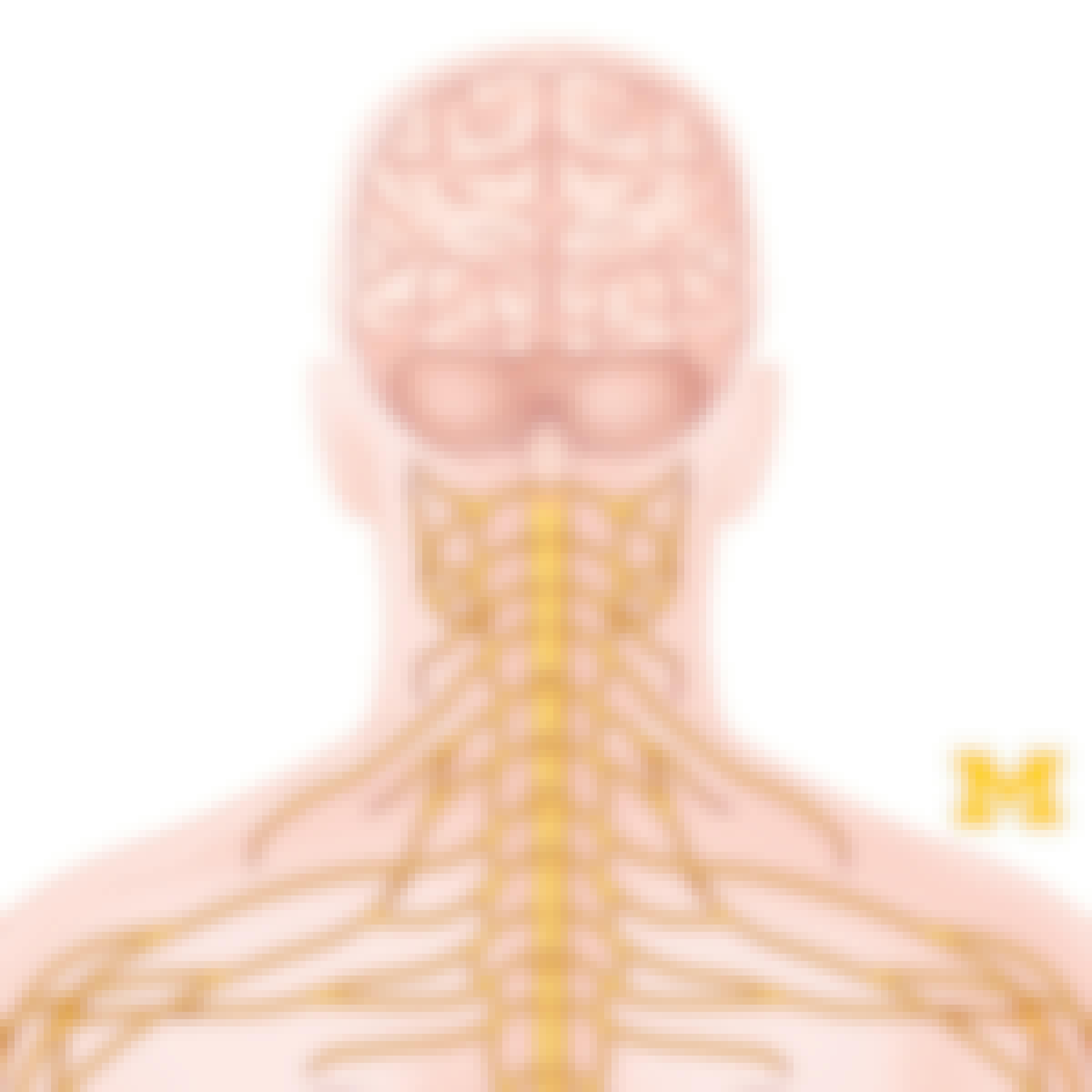 Status: Free TrialFree TrialU
Status: Free TrialFree TrialUUniversity of Michigan
Skills you'll gain: Anatomy, Neurology, Physiology, Medical Terminology
4.9·Rating, 4.9 out of 5 stars996 reviewsBeginner · Course · 1 - 3 Months
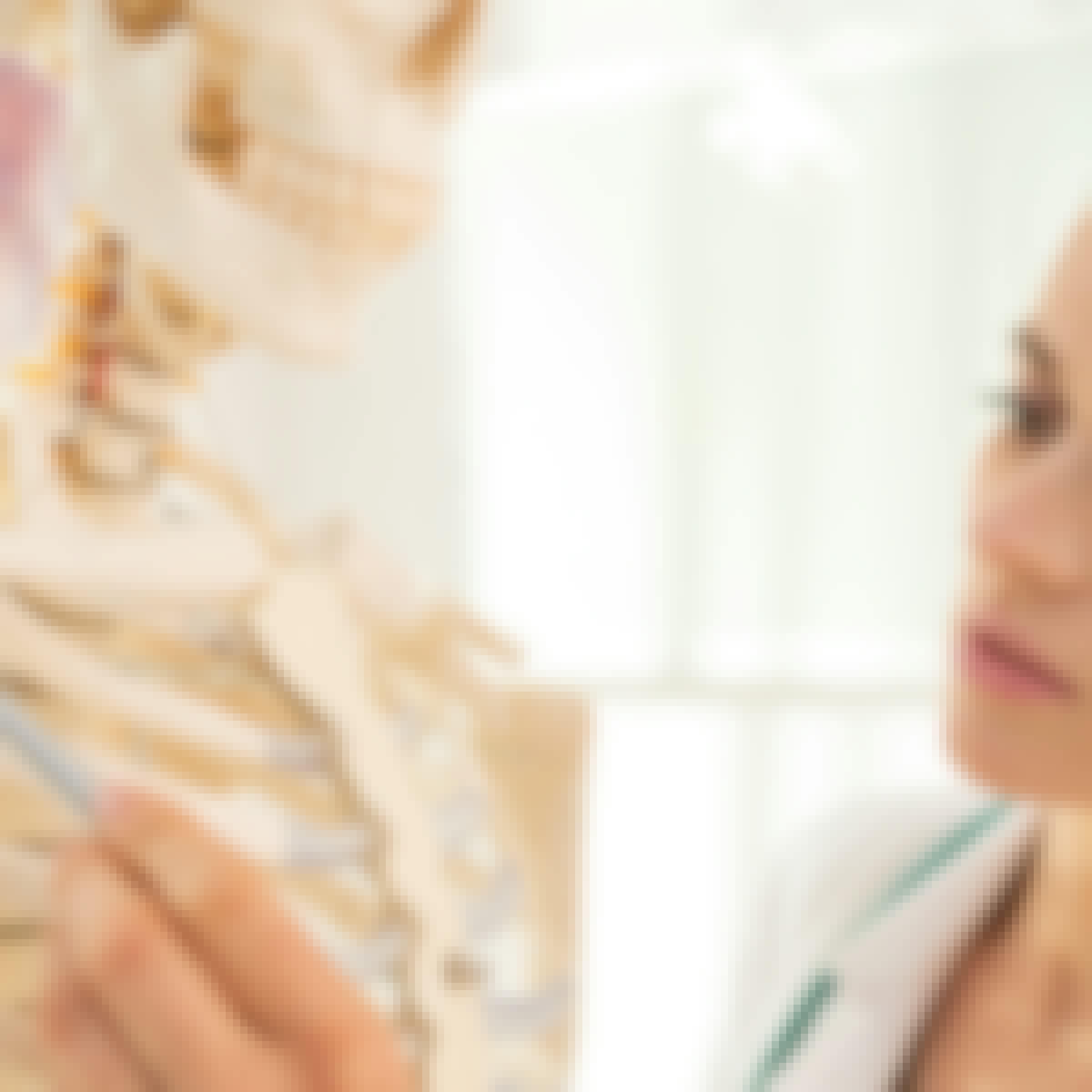 Status: Free TrialFree Trial
Status: Free TrialFree TrialSkills you'll gain: Medical Terminology, Pathology, Medical Records, Anatomy, Health Information Management and Medical Records, Cell Biology, Physiology, Vital Signs, Biology, Human Musculoskeletal System, Nutrition and Diet
4.7·Rating, 4.7 out of 5 stars174 reviewsBeginner · Course · 1 - 4 Weeks
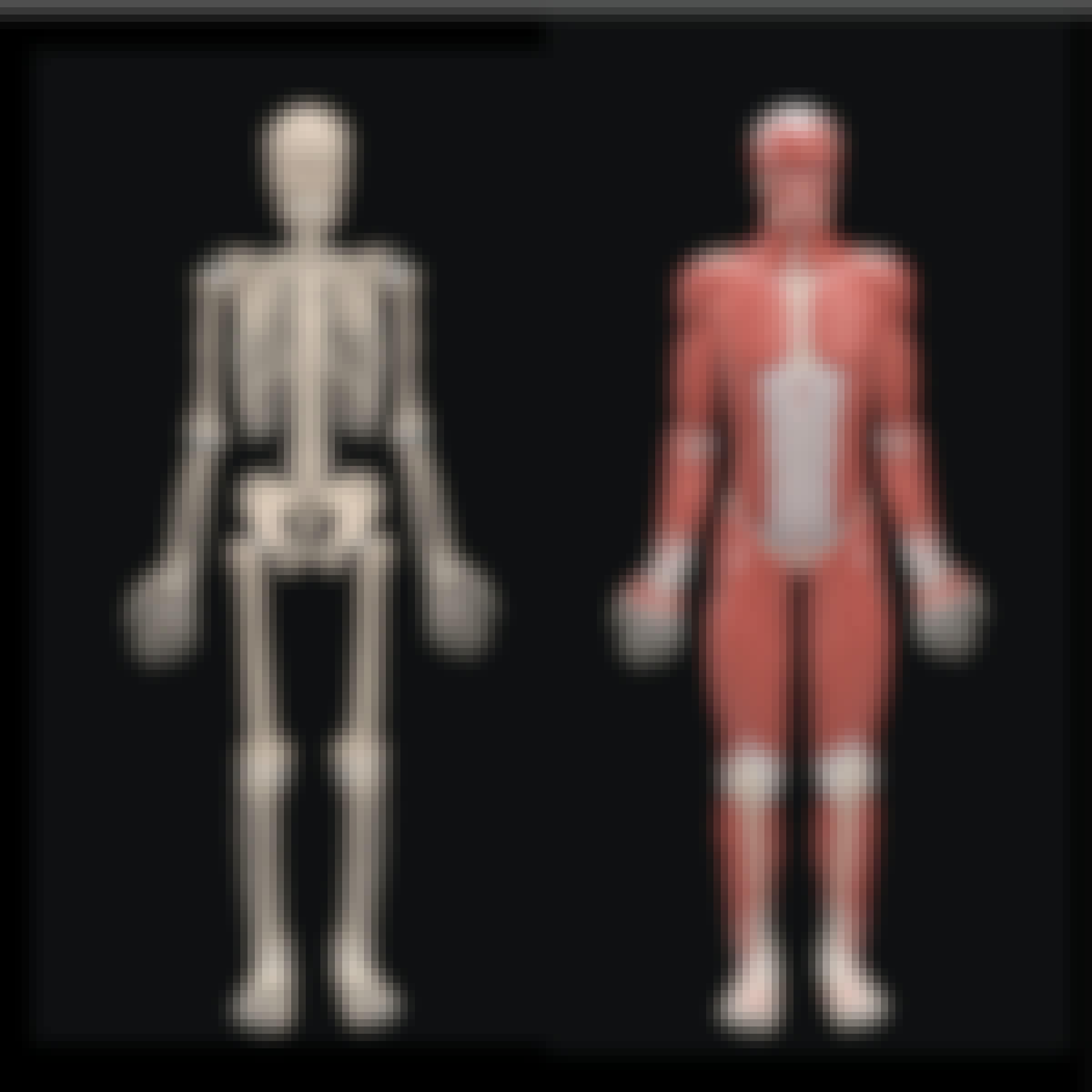 Status: PreviewPreviewT
Status: PreviewPreviewTThe Chinese University of Hong Kong
Skills you'll gain: Human Musculoskeletal System, Anatomy, Sports Medicine, Kinesiology, Orthopedics, Physical Therapy
4.4·Rating, 4.4 out of 5 stars57 reviewsBeginner · Course · 1 - 3 Months
 Status: Free TrialFree TrialN
Status: Free TrialFree TrialNNational Academy of Sports Medicine
Skills you'll gain: Exercise Science, Kinesiology, Sports Medicine, Human Musculoskeletal System, Respiration, Physiology, Neurology, Mechanics, Injury Prevention, Anatomy, Medical Terminology, Nutrition and Diet
4.6·Rating, 4.6 out of 5 stars52 reviewsBeginner · Course · 1 - 3 Months
Anatomy learners also search
In summary, here are 10 of our most popular anatomy courses
- Anatomy: University of Michigan
- Human Anatomy & Physiology I: Rice University
- Human Anatomy and Medical Terminology Fundamentals: MedCerts
- Anatomy of the Head and Spine : Yale University
- Introductory Human Physiology: Duke University
- Anatomy: Musculoskeletal and Integumentary Systems: University of Michigan
- Anatomy of the Chest, Neck, Abdomen, and Pelvis: Yale University
- Anatomy of the Upper and Lower Extremities : Yale University
- Anatomy: Human Neuroanatomy: University of Michigan
- Medical Terminology, Anatomy, and Physiology Fundamentals: MedCerts
Frequently Asked Questions about Anatomy
Browse the anatomy courses below—popular starting points on Coursera.
- Anatomy of the Head and Spine :Yale University
- Introductory Human Physiology: Duke University
- Anatomy: Musculoskeletal and Integumentary Systems: University of Michigan
- Anatomy: Human Neuroanatomy: University of Michigan
- Anatomy of the Chest, Neck, Abdomen, and Pelvis: Yale University
- Anatomy of the Upper and Lower Extremities: Yale University
Understanding why you want to learn anatomy, whether for medical studies, personal interest, or fitness coaching, can focus your studies. Regular study and review of anatomical models or diagrams are helpful. Join communities like medical student forums for support and discussion. Work on real projects like using anatomy apps or virtual dissections. Anatomy Specialization by University of Michigan offers an excellent series of courses to get you started.
Anatomy courses cover a variety of topics essential for understanding the structure and function of the human body. These include the basics of human anatomy, such as the musculoskeletal, cardiovascular, and nervous systems. Learners will explore topics such as organ systems, tissue structure, and anatomical terminology. Advanced courses might cover regional anatomy, clinical applications of anatomy, and anatomical variations. Practical lab sessions and dissections often help learners apply these concepts through hands-on experience.
Choosing the right anatomy course depends on your current knowledge level and career aspirations. Beginners should look for courses that cover the basics of human anatomy, including an overview of major body systems and introductory anatomical terminology. Those with some experience might benefit from intermediate courses focusing on specific systems, such as neuroanatomy or cardiovascular anatomy, and their clinical applications. Advanced learners or professionals seeking specialized knowledge might consider courses on surgical anatomy, radiological anatomy, or preparing for medical certifications. Reviewing course content, instructor expertise, and learner feedback can help ensure the course aligns with your goals.
A certificate in anatomy can open up various career opportunities in healthcare, education, and research. Common roles include medical illustrator, anatomy instructor, research assistant, and healthcare professional. These positions involve teaching anatomy, creating educational materials, conducting anatomical research, and applying anatomical knowledge in clinical settings. With the growing importance of anatomical knowledge in medical and allied health professions, earning a certificate in anatomy can significantly enhance your career prospects and opportunities for advancement in fields such as medicine, physical therapy, and biomedical research.










